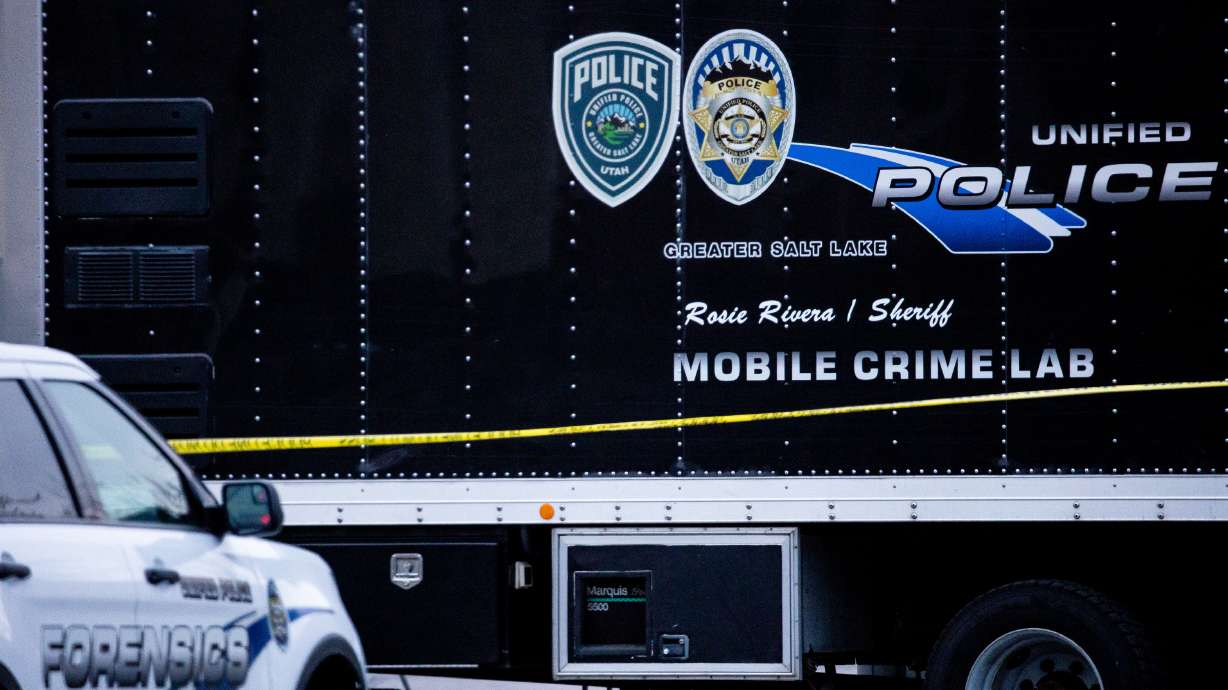Estimated read time: 4-5 minutes
This archived news story is available only for your personal, non-commercial use. Information in the story may be outdated or superseded by additional information. Reading or replaying the story in its archived form does not constitute a republication of the story.
- Gangs in Utah are recruiting increasingly younger members, raising community concerns.
- U.S. Attorney Sirena Wissler states gang violence mainly targets other gangs, not the public.
- Parents should monitor children's activities to prevent gang involvement, emphasizing love and involvement.
SALT LAKE CITY — Gangs in Utah seem to be recruiting younger and younger. How worried should residents be? What can Utahns do to prevent it?
Law enforcement officials have said a Venezuelan gang implicated in a string of high-profile crimes in other states officially has a footprint here in Utah.
But that's just a small part of the bigger picture when it comes to gang activity in the state.
It may seem like there is an uptick in news coverage about violent crimes tied to gangs in Utah. Does that mean the public is at greater risk?
One U.S. attorney, Sirena Wissler, says the public is not necessarily at greater risk as gang activity seems to increase.
Wissler is the deputy chief of the Organized Crime Section in the United States Attorney's Office for the District of Utah.
"There is not a metropolitan area, large or small, anywhere in the United States that does not have some level of gang activity. So Salt Lake is not unique in that regard," said Wissler. "I would also say sort of anecdotally, and just in my experience (of being a) prosecutor of 27 years, that the gang problem in Salt Lake is not currently worse than it has historically been."
Wissler said the gang activity here is much more about gang-on-gang violence rather than aimed toward the general public.
What should parents watch for?
For several years now gangs have been recruiting younger and younger people in Utah. Wissler said parents should be aware of the warning signs if their child has become involved.
"If you have a child, particularly a teenage child who is suddenly appearing at home wearing new clothing that you know you did not purchase or wearing very expensive pair of shoes that you know you did not purchase — carrying a new cellphone that you know you did not purchase — those are sorts of things that organized gangs tend to utilize in recruiting new members."
According to Wissler, one of the most vulnerable groups for gang recruitment are teenage boys, especially those who are financially disadvantaged and may not have strong family connections.
The main preventative measure: Be involved in your child's life.
"(Be) aware of who your children are hanging around with and what they're doing and if they are missing curfew on a consistent basis or you find out they are sneaking out at night. Following their social media and knowing who they are associating with is obviously important," said Wissler.
And being an involved parent doesn't just mean knowing your kid's whereabouts. It's also about making sure they feel loved and valued. Because feeling loved and included at home goes a long way toward protecting kids from the manipulation of gang recruiters, Wissler said.
What do to if a loved one is in a gang?
Kids don't always join a gang on purpose. Gangs are very sophisticated at spotting a young person's vulnerability or need, and they use that information to recruit them. Sometimes it happens without the young person even realizing what's going on.
"If there are parents who suspect that their children have become involved in gangs either wittingly or unwittingly, contact the Metro Gang Unit," said Wissler. "Simply because you contact the metro gang unit for help does not mean your child is going to be arrested or go to jail. The Metro Gang Unit is not only there as law enforcers ... They are there as prevention experts."
Wissler also said there are resources to help kids who are at risk, including mentors or buddies to help get kids away from gang-related situations.
Wissler said the hope and goal is prevention.
"It is troubling to see some of these kids as young as they are committing horrendously violent crimes against other very young people and they are serving very long periods of incarceration, justifiably so in my view. But it also begs the question: How did this happen in the first place? Right? So I think if we can all sort of get together and collectively figure out how to prevent it, then we don't end up losing a generation of young men either to incarceration or to just death."
If you or someone you know needs help, contact the Salt Lake County Metro Gang Unit at 385-468-9773 for support.









